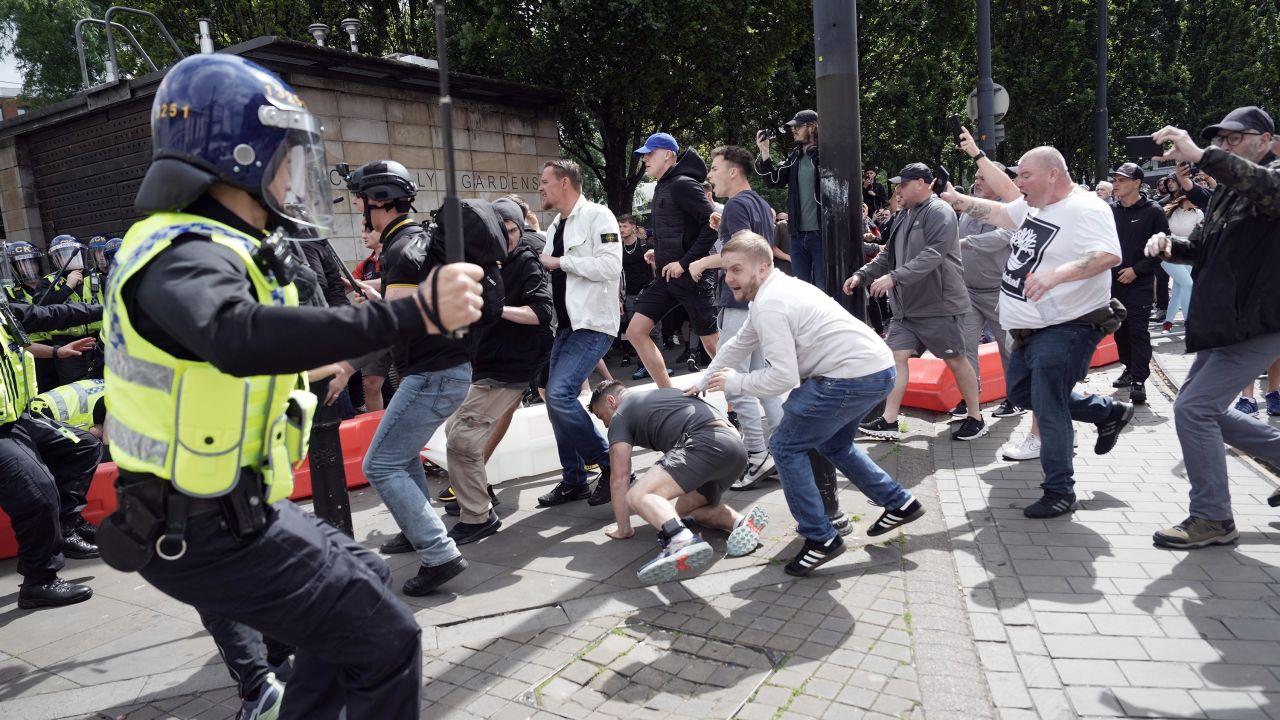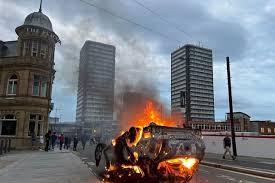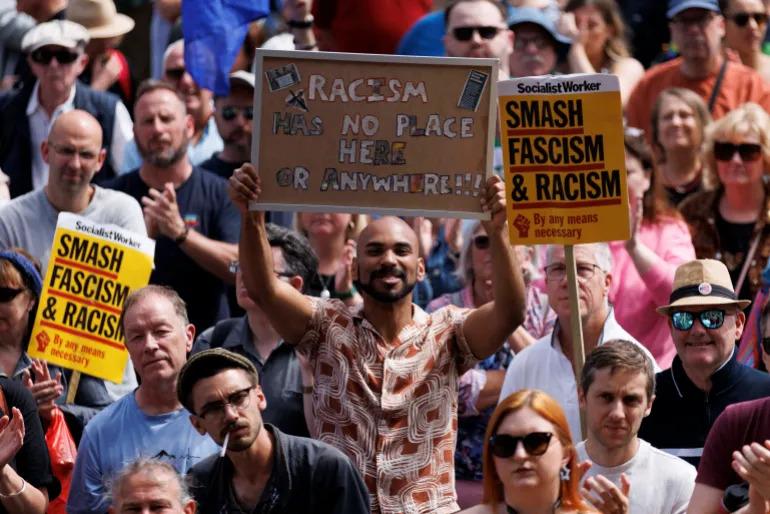Violent protests & far-right unrest test UK labor premier's resolve UK in turmoil
Britain is currently grappling with one of its most severe waves of civil unrest in over a decade, as violent protests driven by anti-immigration sentiment sweep across the country. Sparked by a tragic stabbing attack that left three young girls dead in Southport, the protests have quickly escalated into widespread riots, with far-right groups targeting asylum seekers and clashing violently with the police. These developments represent a significant test for Prime Minister Keir Starmer, who now faces the challenge of quelling the unrest while maintaining public order and upholding the values of his Labour government.
What triggered the protests?
The catalyst for the current wave of protests was a horrific stabbing at a children's dance class in Southport, northwest England, that claimed the lives of three young girls and injured several others. While the suspect, a 17-year-old British-born male named Axel Rudakubana, has been charged with multiple counts of murder and attempted murder, the incident was quickly seized upon by far-right and anti-immigrant groups. Misinformation spread rapidly online, falsely claiming that the attacker was a Muslim immigrant and framing the tragedy as a terrorist act. This narrative, despite being debunked by police, fueled anger and mobilized far-right activists who sought to exploit the tragedy for their own agenda.

The protests have since spread from Southport to towns and cities across the UK, with violent scenes playing out in places like Liverpool, Bristol, Manchester, and Rotherham. The protests, ostensibly about immigration, have evolved into broader expressions of far-right extremism, with rioters targeting hotels housing asylum seekers, attacking police, and vandalizing public property. The unrest has underscored the deep divisions and rising tensions within British society, particularly around issues of immigration, race, and national identity.
Is this a test for the Labour premier?
For Prime Minister Keir Starmer, who took office just a month ago following a decisive electoral victory over the long-ruling Conservatives, the unfolding situation represents a critical test of his leadership. Starmer, who campaigned on promises of social justice, inclusivity, and restoring public trust in government, now finds himself confronting a wave of violence and division that threatens to undermine his administration’s agenda.
The prime minister has condemned the violence in the strongest terms, describing the actions of the far-right protesters as "thuggery" and pledging that those responsible will face the full force of the law.
"I utterly condemn the far-right thuggery we've seen this weekend," Starmer said, adding that the perpetrators "do not represent our country" and that "we will bring them to justice."
His response has been firm, but the scale of the unrest suggests that more than rhetoric will be needed to restore order and address the underlying grievances that have fueled the protests.

Starmer's government must now navigate a complex and volatile situation. On one hand, there is an immediate need to restore public order and protect vulnerable communities, particularly asylum seekers who have been targeted by the violence. On the other hand, there is the longer-term challenge of addressing the societal divisions and economic insecurities that have given rise to far-right extremism. This moment will likely define Starmer's premiership, as he must balance the demands of law and order with his party's commitment to social justice and inclusivity.
Premier’s response
Starmer’s initial response to the protests has been to emphasize the need for law enforcement to take a firm stance against the violence. In a statement, he assured the public that those involved in the unrest would be held accountable, and he rejected any attempts to legitimize the violence as a form of protest. "Be in no doubt," he said, "those that have participated in this violence will face the full force of the law."
Beyond his condemnation of the violence, Starmer has also sought to reassure communities that feel threatened by the unrest. He acknowledged the fear and anxiety that many immigrants, particularly those of the Muslim faith, are experiencing in the wake of the attacks. "To those who feel targeted because of the color of your skin or your faith, I know how frightening this must be," Starmer said, promising that his government would protect all citizens from hate and violence.
In response to the escalating violence, the Home Office has announced new “emergency security” measures to protect mosques and other vulnerable sites, deploying additional police resources to areas where unrest is expected to continue. Despite these efforts, however, the situation remains tense, with more demonstrations and counter-demonstrations expected in the coming days.
The wider impact & future implications
The current unrest is reminiscent of the 2011 riots, which also began as localized incidents before spreading nationwide. Then, as now, the violence was a symptom of deeper societal issues, including economic inequality, social alienation, and racial tensions. The challenge for Starmer and his government is not only to restore order but also to address the root causes of the unrest in a way that prevents future outbreaks.
One of the key concerns is the impact on policing and public safety. With thousands of officers now deployed to manage the protests, police resources are being stretched thin, leading to warnings that other crimes may not be fully investigated. This has raised concerns about the potential for a rise in crime and the erosion of public trust in law enforcement.

Moreover, the unrest has highlighted the growing influence of far-right groups in the UK, who have become increasingly bold and organized in recent years. The spread of misinformation and the use of social media to incite violence are particular challenges that the government will need to address, both through law enforcement and by promoting social cohesion.
Conclusion
The violent protests currently gripping the UK are a stark reminder of the deep divisions and challenges facing British society. For Prime Minister Keir Starmer, this is a critical moment that will test his leadership and the ability of his government to navigate a complex and volatile situation. While the immediate priority is to restore order and protect vulnerable communities, the longer-term challenge will be to address the underlying issues that have given rise to this wave of unrest. The coming days and weeks will be crucial in determining whether Starmer can rise to the occasion and steer the country through this turbulent period.








